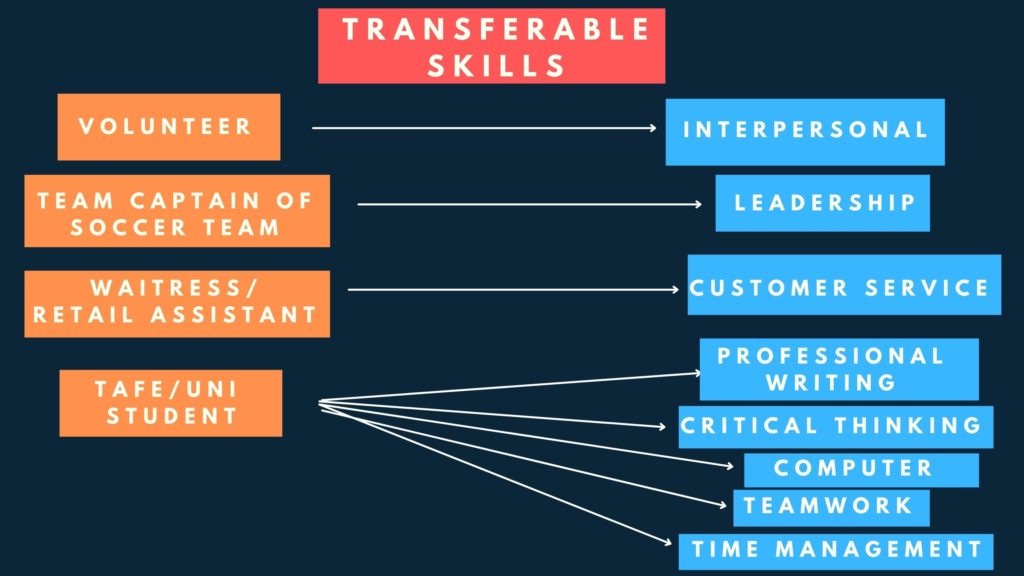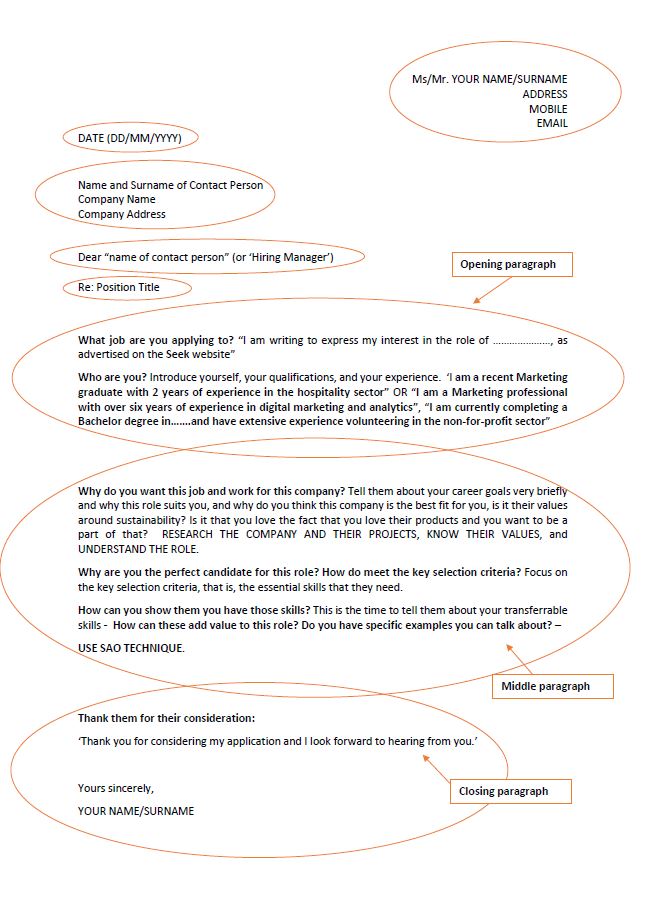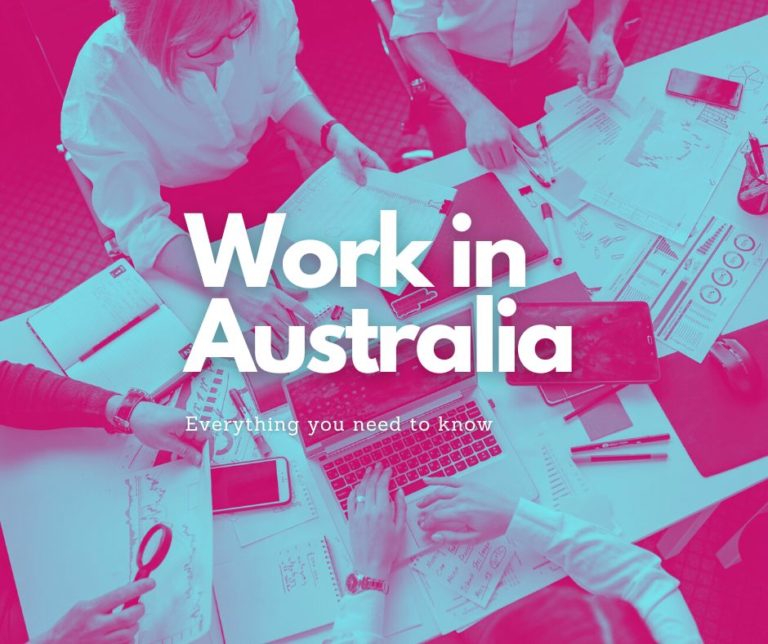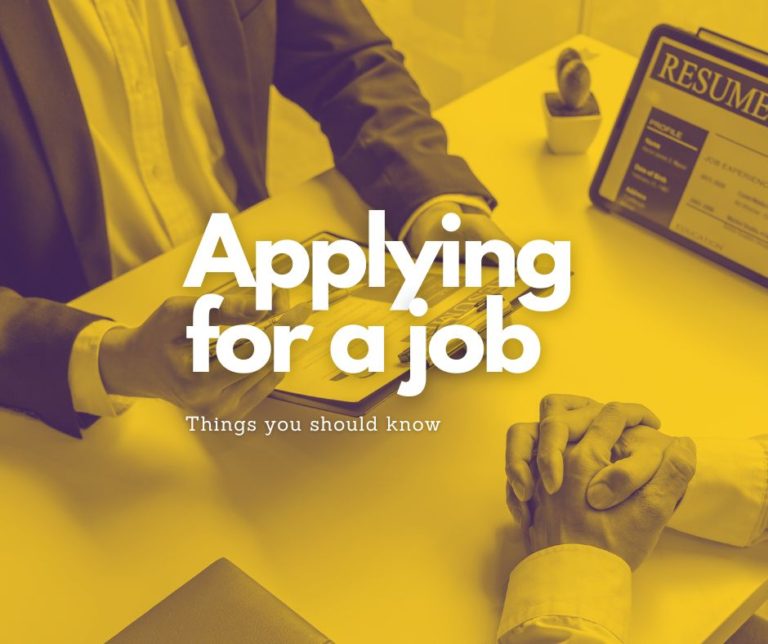Work in Australia: How To Write a GOOD Cover Letter (Complete Guide)
Are looking to work in Australia? If you want to get a job here, you won’t only need a Resume, but you will also need to present a COVER LETTER. A GOOD cover letter will help you stand out amongst other candidates when applying for jobs.
This is a key document that not many people understand how to write or don’t really know what to include in it. In this video, I give you a complete guide on how to write a good cover letter, even if you don’t have work experience.
How do I write a Cover Letter to work in Australia if I don’t have any skills or work experience?
If you feel you don’t have enough skills or work experience to write a Cover Letter, think again.
Seven years ago, when I first came to Australia, I thought I didn’t have any skills or relevant work experience for the jobs that I wanted. I felt that I wasn’t good enough. So the process of writing my resume and cover letter sometimes felt really overwhelming.
That was until someone told me to focus on TRANSFERABLE SKILLS. And from then, writing my resume and cover letter became a much easier process. Let me explain.
What are Transferable Skills?
Transferable skills are those skills that you can TRANSFER from one job or experience to another.
For this, you need to understand the Job Ad or Job description, understand the key selection criteria, that is, the key requirement of the role, the essential skills the company is looking for.
And then you need to come up with specific examples that can use to show that you have skills that you can transfer to that job.
What are examples of Transferable Skills?
Let me give you some examples that you can use for yourself.
Teamwork skills: If you completed a degree or qualification, you probably had to do team projects, assign responsibilities to each team member, and work together towards a common goal, which I’m sure that allowed you to develop excellent teamwork skills.
Time Management skills: Or if you had to study for an exam or submit a university or work assignment by a specific deadline, you probably have good time management skills, or at least you had the chance to work on them.
Critical Thinking and Professional Writing: If you had to write an essay or report, this shows that you have the ability to think critically and write professional documents.
Computer and data entry skills: And because you had to write your assignments on MS Word or Excel, or used any other software, I bet that you have good computer and data entry skills.
Communication skills: If you had to give a presentation in front of your class, I’m sure this was an excellent opportunity to work on your communication skills.
Leadership skills: If you were part of a sports club or led a sports team or any other team, this shows your leadership capabilities and your ability to lead and mentor.
Interpersonal skills: if you did any other extracurricular activity such as volunteering and helping others, your interpersonal skills and ability to build strong relationships with clients are probably what allowed to do well in those volunteering positions.
Customer service skills: On the other hand, if you worked at a restaurant or cafe, it’s likely that you are good at communicating with customers, and making them feel welcome – which means that you probably have good customer service skills.
Organisational skills: And of course, if you took orders, organised stock and invoiced suppliers, I bet that your organisational skills are top-notch.
Problem-solving skills: And if you ever came across a difficult customer and had to figure out a way to solve their issues in a way that left them happy, you probably have good problem-solving capabilities.
Identify your Transferable Skills
Before starting writing your resume and cover letter, I recommend writing a list of all the skills that you think you’ve developed throughout your studies, volunteering activities, work experience in hospitality, or even hobbies.
Think about specific tasks you had to do or any challenges or problems you had to deal with throughout these experiences, and try to link them to each of these transferable skills.
Hint: if you’ve studied in Australia, check the Learning Outcomes of your study course, because they include a description of all the skills that you develop in each subject.

If after doing this, you still feel that you don’t have enough experience, I would recommend volunteering, doing internships, or finding ANY job – I am sure that this is going to give you the transferable skills you need.
How should I structure my Cover Letter?
The Cover Letter Structure to find a job in Australia is as follows:

What should I include in the opening paragraphs of my Cover Letter?
First part:
- Your contact details
- Date (in day, month and year)
- Name and Surname of Contact person (you will find their name in the job description, if not, leave it blank)
- Company name and address
- Start the letter with: Dear “name of contact person” – if you don’t have the name of the contact person, write “Dear Hiring Manager”
- Follow with “Re:” reference to position title.
Second part:
- What job are you applying to? Where did you find the job ad?
- Who are you? Introduce yourself briefly, your experience, and qualifications
What should I include in the middle paragraphs of my Cover Letter?
The middle paragraphs of your Cover Letter should address the following questions:
- Why do you want this job and work for this company? (For this you need to research the company and explain why are you motivated to work with them)
- Why are you the perfect candidate for this role? This is your chance to explain how do you meet the key selection criteria
How can I address the Key Selection Criteria?
To address the Key Selection Criteria in your Cover letter (or separate page), I recommend using a very well-known technique called SAO. This stands for Situation, Action, and Outcome.
- Situation: where were you working at the time? Or what was the issue?
- Action: what were you responsible for? Or what action you took to solve the issue?
- Outcome: what was the result of your action? Of course use positive examples.
Let me give you an example.
A company is looking for someone who has excellent organisational and communication skills and experience supporting community development projects. To address the key selection criteria you could write:
“During my time volunteering as a Support Officer in Colombia (situation), I spent most of my time managing a team of volunteers and organising fundraising events to build a community hospital (action). This allowed me to sharpen my organisational and communication skills (outcome). This was reflected in my ability to build solid relationships with donor agencies and community members and collect enough fundings to complete our project (outcome).”
Your key selection criteria statements should be brief and to the point – it is about showing and providing evidence on how you can apply your existing skills to the job.
Your statement should be no longer than 120 words.
What should I include in the closing paragraph of my Cover Letter?
In the closing paragraph of your cover letter you thank the company for their consideration.
Mistakes to avoid when writing your Cover Letter
- Be professional in your writing, and avoid spelling or grammar mistakes. I recommend downloading a tool called ‘Grammarly’. It’s a freee tool that automatically spots spelling or grammar mistakes and corrects them for you.
- Use sentences such as “During my time at “xyz company”, instead of saying ‘I worked at” – and try to use verbs in past tense, such as ‘I organised’, or ‘I led’, ‘I was responsible for’
- Keep your Cover Letter 1-page long, NO MORE.
Use Positive Language
- Always remember to write your cover letter from a point of strength. This means using positive language. For example, instead of saying ‘I dont have enough experience’, you should say ‘I have some experience in…’.
If you are recent graduate, avoid saying ‘I just graduated and don’t have work experience or skills’. Instead, you should say ‘I just graduated from a 3-year degree which allowed me to develop excellent organisational, critical thinking, and teamwork skills’.
OR: ‘I only worked as a waitress, and don’t have professional work experience’. Instead, you need to say ‘I have two years of experience in the hospitality industry, mainly in client facing roles, requiring high level customer service and interpersonal skills’.
You see how it changes?
I wish you all the best in your job hunting! (Leave a comment if any questions!)



